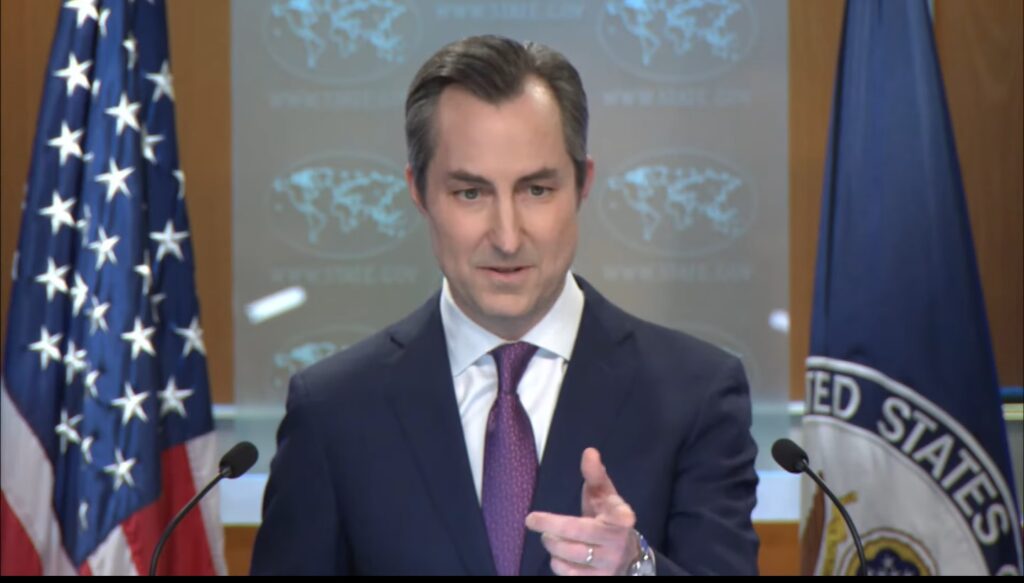- Web Desk
- Feb 24, 2026
US assures Pakistan easing its energy crisis is a ‘priority’, amidst Iran-Pakistan pipeline tensions
-

- Web Desk
- Mar 28, 2024

WASHINGTON: The United States (US) Department of State Spokesperson Matthew Miller stated that addressing Pakistan’s chronic energy shortages was a ‘priority’ for the United States on Wednesday.
The announcement comes just two days after Miller subtly warned Pakistan of sanctions if it kept working on a gas pipeline project with Iran.
Read more: US warns of sanctions risks, opposes Iran-Pakistan pipeline project
Addressing a press briefing in Washington, Miller said that “helping Pakistan address its energy shortage crisis is priority for the United States”. The spokesperson talked in detail about the projects the US has undertaken to address the issue, including a 4,000 megawatt of clean energy initiative in Pakistan. “We have supported the addition of approximately 4,000 megawatt of clean energy capacity in Pakistan”.
Miller repeatedly stressed how his country’s “projects have dramatically increased [Pakistan’s] electricity capacity, today powering the homes of millions of Pakistanis”.
The spokesperson stated how the US-backed projects have helped in alleviating energy shortages in Pakistan.
Miller also went on to state that the United States has demonstrated a committment to addressing environmental challenges in Pakistan through initiatives such as the Green Alliance. “Through the United States-Pakistan Green Alliance initiative between our countries, we are working together to address the most pressing environmental challenges especially around water management, climate-smart agriculture and renewal energy”, he stated.
Read more: China demands swift trial, arrest of perpetrators of Bisham attack
When questioned about the possibility of the United States participating in “any investigations” regarding the terrorist attack that claimed the lives of five Chinese nationals in Pakistan on Tuesday, Miller responded that he was “not aware of any request for [the US] to do so”.




